Underbanking
-thumb-360x245-512.jpg) There's this word I never heard until I started coming to Consult Hyperion's annual Tomorrow's Transactions Forum: "underbanked". It's definitely a thing. In its 2015 biannual survey, the Federal Deposit Insurance Corporation, which insures American consumers' bank accounts, estimates that 8% of Americans have no bank account and 20% are "underbanked", which means that although they have a bank account they also rely on alternative financial services such as check cashers, informal friends and family lending, and payday lenders for at least some of their needs. Globally, 2 billion people were unbanked in 2015.
There's this word I never heard until I started coming to Consult Hyperion's annual Tomorrow's Transactions Forum: "underbanked". It's definitely a thing. In its 2015 biannual survey, the Federal Deposit Insurance Corporation, which insures American consumers' bank accounts, estimates that 8% of Americans have no bank account and 20% are "underbanked", which means that although they have a bank account they also rely on alternative financial services such as check cashers, informal friends and family lending, and payday lenders for at least some of their needs. Globally, 2 billion people were unbanked in 2015.
At this year's Forum (for past years see 2016, 2015, 2014, 2012, and 2010), University of Pennsylvania professor Lisa Servon challenged it. "Have you ever heard anyone say they wish they had more banking in their lives?" she asked. Policy makers tend to say, "How can we get them into bank accounts?" instead of, "How can we get banks to serve these people better?"
 Servon is author of The Unbanking of America. In it she commits an act of journalism and works for four months at the check cashing service RiteCheck, and later at a payday lender. Affluent people generally presume that anyone using these "predatory" services is desperate and too naive to understand they're being gouged. Servon finds instead that most are people in difficult situations making rational decisions. They *are* often desperate - but banks are among the reasons. It's in the language: if some are "creditworthy", then some must be *un*worthy, and by implication they must be improved.
Servon is author of The Unbanking of America. In it she commits an act of journalism and works for four months at the check cashing service RiteCheck, and later at a payday lender. Affluent people generally presume that anyone using these "predatory" services is desperate and too naive to understand they're being gouged. Servon finds instead that most are people in difficult situations making rational decisions. They *are* often desperate - but banks are among the reasons. It's in the language: if some are "creditworthy", then some must be *un*worthy, and by implication they must be improved.
Servon argues that changes in policy and banking regulations have led to escalating fees and practices that are decidedly hostile to consumers, especially those whose lives are so precariously financed that any glitch - a car breakdown, illness, a late pay check - cascades into damage from which recovery can take years. Contracting wages and government safety nets add to the pressure. So, as she says, if it's Friday and you need groceries for the weekend, it is more predictable and safer to pay RiteCheck's 2% fee to cash your paycheck than to risk that the check you write for groceries will hit during the bank-imposed delay in crediting the funds. In other words, on a $200 check you pay $2 to eliminate the chance of bank charges or $30 to $100. In a panel, Paul Makin, Chyp's head of financial inclusion, used a word to describe the banks' approach that applies equally to Servon's customers:"derisking". Makin then pointed out that in the UK direct debit poses the same set of risks for people with unpredictable income streams, such as freelances.
 "It's frustrating," Makin added, "because we have the power to reengineer Direct Debit." In his example, sending a notification of an upcoming payment and asking people to push a button to pay when they were ready would remove much of that risk for many.
"It's frustrating," Makin added, "because we have the power to reengineer Direct Debit." In his example, sending a notification of an upcoming payment and asking people to push a button to pay when they were ready would remove much of that risk for many.
Financial inclusion has frequently popped up at these events (Makin was involved in designing Kenya's M-Pesa), but where the previous years linked above buzzed about mobile wallets, the blockchain, or the Internet of Things, and the first event was obsessed with virtual currencies, this year none of these commanded the stage. Instead, the oncoming train was the incoming Payment Services Directive 2, which is intended to open up banking to new players and services. As "open banking" becomes a reality over the next two years, interoperability becomes an enormous issue - and so inevitably does inclusion. As the session on transit made plain, the next generation of large public systems cannot be built without inclusion, and it's more failure-prone and expensive to build systems to serve the rich and (shrinking) middle class and then to find ways to bolt on support for the less advantaged. Instead, the more flexible your system and the more approaches it supports the better. As Ben Whitaker, a co-founder of the the mobile ticketing company Masabi, said, no medium will cover 100% of the population, so deploying multiple options is essential. For Servon's stressed-out former customers, Transport for London's contactless debit card payments may present a vicious circle waiting to happen: debit hits bank at wrong moment, bank bounces and charges fee, customer can't board bus to work, customer gets fired.
The split between people who see bank accounts as the first step to respectability and those for whom they pose unacceptable risks is about more than just money, as the freelance example above shows. Servon cites studies to show that millennials, under far more pressure than their parents were at their age, want much more help from financial services than banks understand and that today's newcomer apps are beginning to offer. Just as many are not interested in owning cars, many are not interested in having traditional bank accounts and may never become so. The result is also a split between those who want "frictionless" payments - merchants, who want us to spend more without noticing soon enough to stop ourselves and people with more money than patience. For the rest of us, friction that makes us pause to say, "What am I doing here?" is a good thing.
Illustrations:: Checks cashed, Paul Makin, Lisa Servon.
Wendy M. Grossman is the 2013 winner of the Enigma Award. Her Web site has an extensive archive of her books, articles, and music, and an archive of earlier columns in this series. Stories about the border wars between cyberspace and real life are posted occasionally during the week at the net.wars Pinboard - or follow on Twitter.
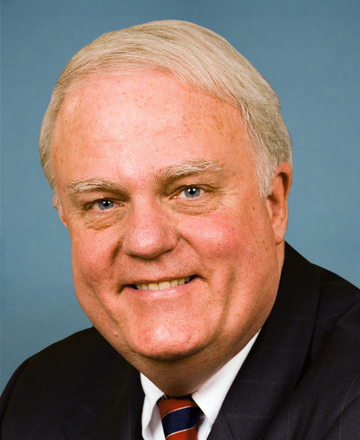


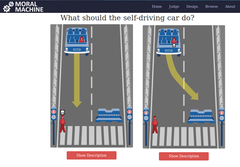
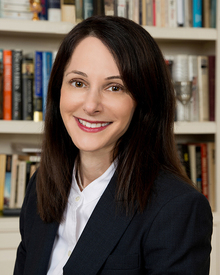
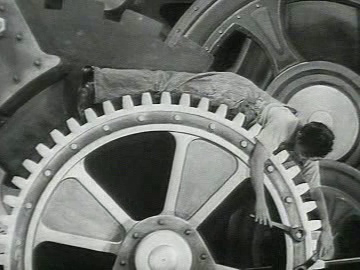 The mainstream theme about robots for the last year or so has been the loss of human jobs. In 2013, Oxford Martin professors Carl Bendikt Frey and Michael Osborne estimated that
The mainstream theme about robots for the last year or so has been the loss of human jobs. In 2013, Oxford Martin professors Carl Bendikt Frey and Michael Osborne estimated that 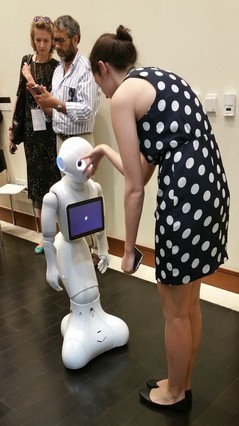 More than in past years (2016's
More than in past years (2016's